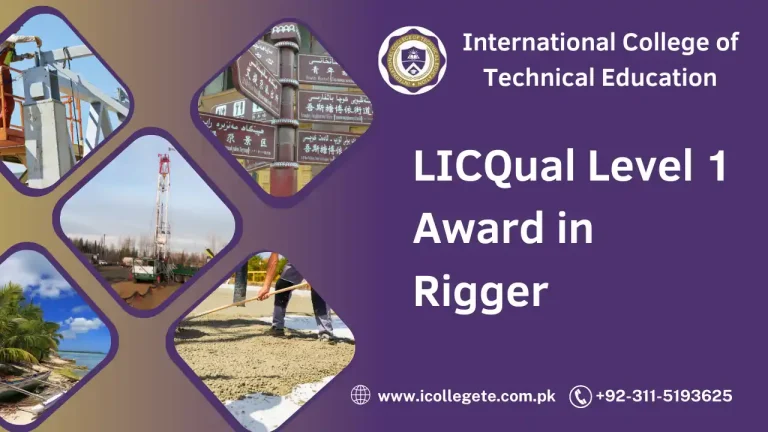Surveying is a crucial aspect of civil engineering that involves measuring and mapping the Earth’s surface for the construction of infrastructure such as roads, buildings, bridges, and tunnels. The role of a civil surveyor is indispensable in ensuring that projects are constructed accurately, efficiently, and safely. As Faisalabad continues to grow with a booming construction sector, there is a rising demand for skilled civil surveyors. If you’re interested in a career that combines fieldwork, technical skills, and an understanding of engineering principles, a Civil Surveyor course in Faisalabad could be your gateway to a fulfilling career.
The Civil Surveyor course in Faisalabad is designed to equip students with the technical knowledge and practical skills required to conduct land surveys for civil engineering projects. This course will teach students how to accurately measure, map, and assess land and its features to aid in the planning, design, and construction of infrastructure projects. By utilizing advanced tools and techniques such as Total Stations, GPS, and AutoCAD, students will be prepared to contribute effectively to both public and private sector construction projects.
Whether you’re interested in becoming a site surveyor, land surveyor, or project manager, this course offers a comprehensive foundation in the essential surveying skills required in today’s construction and civil engineering industry.
Course Overview
The Civil Surveyor course in Faisalabad covers both theoretical concepts and hands-on practice. The course is divided into various modules that introduce students to the different surveying tools and methods used in the field. From basic principles of measurement to advanced techniques, students will learn how to conduct land surveys, gather data, and create maps that are critical for the design and construction of civil projects.
Key topics include the principles of land surveying, tools and equipment used in surveying, data analysis and interpretation, and how to prepare survey reports. In addition, students will learn about the role of surveyors in ensuring compliance with building regulations and environmental standards.
Study Units
The Civil Surveyor course in Faisalabad is divided into multiple study units that focus on different aspects of surveying. Here is an outline of the major units you can expect to cover:
- Introduction to Surveying:
- Basic principles of surveying
- History and evolution of surveying
- Types of surveys: land surveys, topographic surveys, boundary surveys, and construction surveys
- Surveying Instruments and Equipment:
- Overview of essential surveying tools (compass, theodolite, total stations, levels)
- Understanding GPS and its applications in surveying
- Introduction to AutoCAD for creating survey maps and drawings
- Handling and maintaining surveying instruments
- Measurement Techniques:
- Horizontal and vertical measurements
- Measurement of angles and distances
- Surveying methods: triangulation, trilateration, and leveling
- Introduction to electronic distance measurement (EDM) and Total Station
- Topographic and Boundary Surveys:
- Conducting topographic surveys to map land features
- Performing boundary surveys to determine property lines
- Plotting survey data on maps and diagrams
- Determining elevation changes and slopes
- Survey Data Analysis and Interpretation:
- Calculating area, volume, and angles
- Creating contour maps and profile drawings
- Analyzing survey data for construction design purposes
- Surveying for road, bridge, and building design
- Construction Surveys:
- Site surveys for construction projects
- Setting out structures on the ground (e.g., buildings, roads, bridges)
- Monitoring and ensuring construction alignment and accuracy
- Managing surveying data in construction projects
- Legal and Ethical Aspects of Surveying:
- Understanding property laws and boundary disputes
- Adherence to building codes and regulations
- Professional ethics in surveying and land measurement
- Practical Field Work:
- Fieldwork assignments where students perform real-time surveys
- Collecting and recording data on-site
- Preparing survey reports and presenting findings
- Hands-on use of surveying instruments
Learning Outcomes
Upon successful completion of the Civil Surveyor course in Faisalabad, students will have gained the following skills and knowledge:
- Proficiency with Surveying Equipment: Students will become proficient in the use of surveying instruments, such as the theodolite, total station, GPS, and leveling devices, and will understand their applications in real-world surveys.
- Data Collection and Analysis: Students will be able to collect accurate data during field surveys and interpret it to create meaningful reports and maps.
- Surveying Techniques: Students will master a range of surveying techniques, including measurement of angles, distances, and elevations, as well as methods for topographic and boundary surveys.
- Mapping and Drafting Skills: Students will be skilled in drafting survey results into professional-grade maps and using software like AutoCAD to create detailed drawings for engineering purposes.
- Understanding of Legal and Ethical Considerations: Students will have a strong understanding of property laws, boundary disputes, and the ethical considerations in the surveying profession.
- Construction Site Surveying: Students will learn how to perform construction surveys and ensure that projects are aligned with design specifications and legal requirements.
Course Benefits
Enrolling in the Civil Surveyor course in Faisalabad offers several advantages:
- High Demand for Surveyors: The demand for qualified surveyors is constantly growing, especially in developing cities like Faisalabad where infrastructure projects are booming.
- Hands-On Training: Students gain valuable practical experience through fieldwork and real-life surveying exercises, making them job-ready upon completion of the course.
- Industry-Relevant Skills: The course provides students with essential skills in using surveying equipment, drafting survey maps, and analyzing data, all of which are crucial for a career in civil engineering.
- Competitive Salary: Surveyors are in high demand and are compensated well for their expertise. With the right skills, you can command a good salary in both public and private sector roles.
- Career Flexibility: Surveying is a versatile skill that can lead to various career opportunities, including roles in land surveying, construction management, urban planning, and GIS (Geographic Information Systems).
- Contribution to Major Infrastructure Projects: Surveyors play a critical role in large-scale infrastructure projects, such as highways, bridges, and buildings, giving you the chance to contribute to your community’s development.
Who Is This Course For?
The Civil Surveyor course in Faisalabad is ideal for:
- Aspiring Surveyors: Individuals who are interested in becoming professional surveyors and wish to work in the civil engineering, construction, or urban planning sectors.
- Civil Engineering Students: Students pursuing a degree in civil engineering who want to gain additional practical experience and specialize in surveying.
- Technicians and Engineers: Professionals working in the construction and infrastructure industries who want to enhance their surveying skills or broaden their knowledge base.
- Construction Professionals: Individuals working in construction management or site supervision who want to understand the intricacies of surveying for more accurate project planning.
- Entrepreneurs: Individuals who want to start their own surveying or construction consulting business.
Future Progression
Upon completion of the Civil Surveyor course in Faisalabad, there are many career progression opportunities, including:
- Land Surveyor: After gaining experience, you can specialize as a land surveyor, focusing on boundary surveys, property measurements, and legal documentation.
- Construction Surveyor: You could work in the construction industry, performing site surveys for new projects, monitoring construction progress, and ensuring designs are implemented correctly.
- Geographic Information Systems (GIS) Specialist: With additional training, you can specialize in GIS, using survey data to create maps and analyze geographical information for urban planning, environmental studies, and resource management.
- Surveying Consultant/Entrepreneur: Experienced surveyors can start their own consulting firm, providing surveying and mapping services to a range of industries, including real estate, construction, and government projects.
- Project Manager/Coordinator: As you gain more experience, you could transition into construction project management, overseeing multiple projects and ensuring they align with survey and design specifications.
- Further Education and Certifications: You can pursue additional certifications in specialized areas such as hydrographic surveying, remote sensing, or advanced GIS, which will expand your career options and opportunities for growth.
the Civil Surveyor course in Faisalabad provides a comprehensive foundation for anyone interested in a career in surveying and civil engineering. The course equips students with the knowledge, skills, and hands-on experience needed to excel in this critical field, offering exciting career prospects in both the public and private sectors. Whether you want to work as a land surveyor, construction surveyor, or GIS specialist, this course will set you on the path to success in the growing construction industry.







